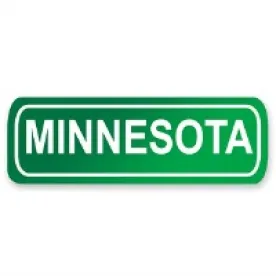Although many states of emergency have expired, new lawsuits that allege price gouging continue to be filed. On September 3, 2021, Minnesota Attorney General Keith Ellison filed a complaint in Minnesota state court against Sparboe Farms, Inc. alleging the company engaged in price gouging for the sale of eggs in violation of the Minnesota Governor’s executive order.
The case is significant because Minnesota does not have a price gouging statute. Instead, Minnesota Governor Tim Walz issued Executive Order 20-10 on March 20, 2020, prohibiting “unconscionably excessive increases in the prices of essential items during the COVID-19 peacetime emergency.” Under the executive order, “unconscionably excessive increases” includes charging a price more than 20 percent greater than the amount charged for the same product in the 30 days prior to March 13, 2020, when the state of emergency was declared. The case alleges as its sole substantive violation a failure to comply with the Executive Order.
According to the complaint, during March and April 2020, Sparboe—one of the nation’s leading shell egg producers—sold its eggs at double and triple the prices charged in February and March. In February and March, the Attorney General alleges the average price for a dozen Sparboe eggs was between $0.84 and $1.00. The complaint then alleges the price for a dozen Sparboe eggs rose to almost $3.00 in late March and early April. The Attorney General also details alleged communications among Sparboe employees regarding the prices. For instance, the complaint alleges the Sparboe president exchanged messages with her employees that conveyed that “demand” and reduced outputs had “led to strong buying interest,” so strong that the price of eggs could jump from $1 per dozen to $3 per dozen.
The Attorney General also alleged retail and wholesale customers asked Sparboe to lower their prices eggs during March and April of 2020. According to the complaint, the company received an email raising concerns about having “seen 52% plus cost increases and now are up to 134% from three weeks ago.” The email asked Sparboe to “consider a cost decrease” due to the “abundance of complaints over the drastic price increases.” Another wholesaler asked Sparboe to “please consider passing to us a cost decrease next week, regardless of what the ‘market’ would indicate.” In response to customers, Sparboe pointed to market indices that continued to rise throughout that period, including contracts that were tied to those indices.
The complaint seeks disgorgement of profits and penalties of up to $25,000 for each separate violation of the executive order. The extent of the monetary damages may be considerable, because the penalties can apply to each allegedly wrongful sale.
This case follows similar cases in other states alleging price gouging of consumer goods during the pandemic. While certain states of emergency may have expired, conduct during the emergency period still may come under scrutiny from state officials and private plaintiffs. This case raises interesting questions on several fronts that should serve as a caution for other companies. Here, without a clear price gouging statute, the Attorney General relies on the Governor’s executive order, which has the force and effective of law under Minn. Stat. § 12.32. As with gubernatorial stay-at-home orders, challenges have come to such orders imposing fines or penalties. Second, Sparboe appears to rely on both market indices and contracts tied to such indices as justification for its price increases (which may not be viable defenses), though it is unclear the extent to which Sparboe may have had cost increases to justify such increases—a specific defense listed in the executive order.






 />i
/>i

